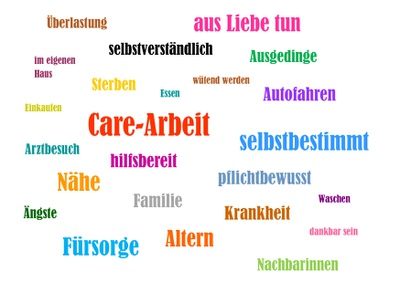A gender perspective on home care for the elderly in rural areas.
Funding
Institute of Rural History (own project)
Duration
April 2017 – October 2018
Researcher
Description
Currently, home care is the most common way of caring for elderly and sick people in Austria. In recent discussions about the quality of life of caregivers and patients, several normative figures play a significant role: (decreasing) efficiency, female compassion, family cohesion and living in one’s own home for as long as possible. This project addresses these ideas as well as differences between towns and the countryside in terms of living conditions, and transportation networks. Source materials include diaries and auto/biographies in which caring relatives commented on their constant presence at home, their daily routines and (missing) connections to the village community. These ego-documents shed light on multi-faceted caring arrangements beyond dichotomies such as nursing homes vs. family homes or paid work vs. “labour of love”.
